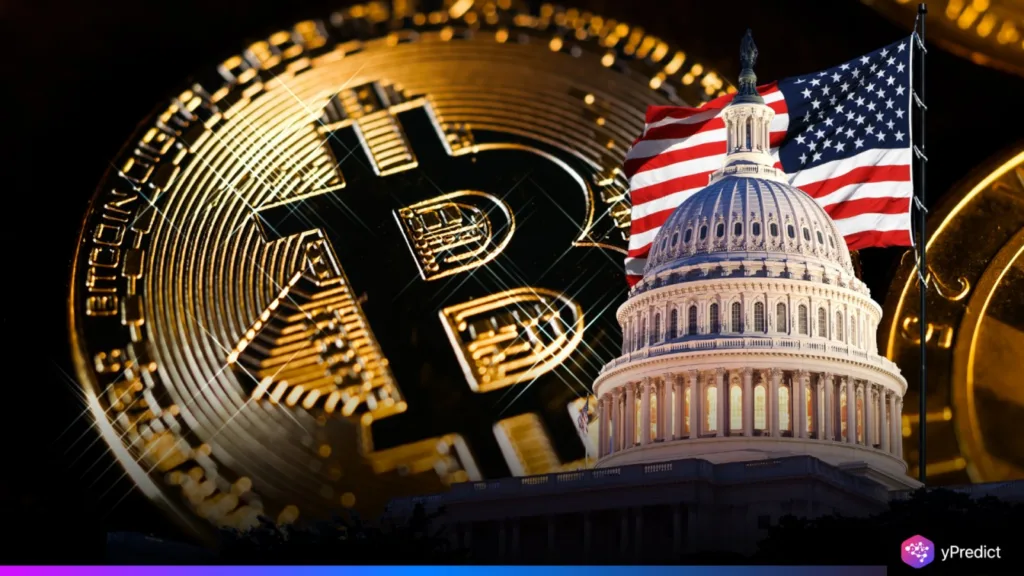
The Illinois governor signed the Illinois Crypto Bill on August 18, 2025, marking one of the most assertive state-level moves in digital asset regulation. The law establishes direct oversight for every crypto exchange operating in the state and caps ATM fees at 18%. Lawmakers designed the legislation in response to $272 million in fraud losses reported across Illinois in 2024, according to FBI data. The bill highlights a growing clash between federal deregulation, largely advanced through the Trump Crypto Order, and state governments prioritizing consumer protection.
State Oversight Targets Exchange Activity
Illinois legislators placed crypto exchange operations under regulatory review to ensure consumer security after years of rising fraud cases. By limiting ATM fees and demanding transparency, the Illinois Crypto Bill attempts to reduce exploitation at retail levels. State officials pointed to direct losses, saying the market needed a stronger framework to protect residents.
This oversight directly counters the deregulatory push at the federal level. In January 2025, while the Trump administration was furthering expansions through the Trump Crypto Order, Illinois was narrowing access and emphasizing accountability. Supporters suggest that this dual system is needed in a fragmented U.S. crypto marketplace when exchanges largely can use their discretion to avoid uniform checks.
Trump Crypto Order Draws Criticism
The rollback of regulations adopted during the Biden administration, including a reversal of the IRS broker rule, was announced in January 2025. The reality of the situation is that critics called it irresponsible; it encouraged speculation and bypassed systemic risks under the proposed order. The view of the order was helping grow the U.S. marketplace. The order walked back consumer protections, prompting state regulators to take action.
State lawmakers in Illinois nudged their bill through, arguing it was an immediate response to the federal government refusing to put an emphasis on protection, and they were left making their protections. Not surprisingly, they positioned the state’s bill as a part of a broader trend: While Washington is opting for expansion, other states like Illinois are adopting restrictive rules. This clash is shaping the current policy environment, with investors caught between innovation and regulation.
Consumer Protection Takes Center Stage
The Illinois Crypto Bill resonates with long-standing CFTC warnings about digital fraud. As early as 2017, the commission began issuing alerts about scams related to unregulated exchanges, raising issues that retail traders were not aware of and making it clear that they were unwittingly putting themselves in harm’s way. To reinforce their position as a state operating on objective realities rather than guesswork, Illinois signed onto each alert.
The fraud losses in 2024, in the amount of $272 million, fortified the case for intervention. Officials claim the new law not only caps fees but also deters shady operators from exploiting users. By targeting exchanges and ATMs simultaneously, the bill aims to restore trust in a market still lacking nationwide consistency.
National Divide Over Crypto Oversight
The Illinois move underscores the sharp divide in U.S. crypto policy. On one side, the Trump Crypto Order promotes growth through deregulation. On the other hand, the Illinois Crypto Bill insists on tighter rules for exchanges and transaction points. Whether the U.S. should continue to favor innovation even if it comes with some risk to consumers. It depends upon whether states will step in and subsume the regulatory role.
Market analysts believe with things going the way they are federally, we could see more states pursuing Illinois’ path. For now, Illinois is a laboratory where regulation collides with actual real-world fraud data. With exchanges under new pressure, the balance between protecting investors and encouraging adoption. It will remain at the heart of America’s crypto debate.






